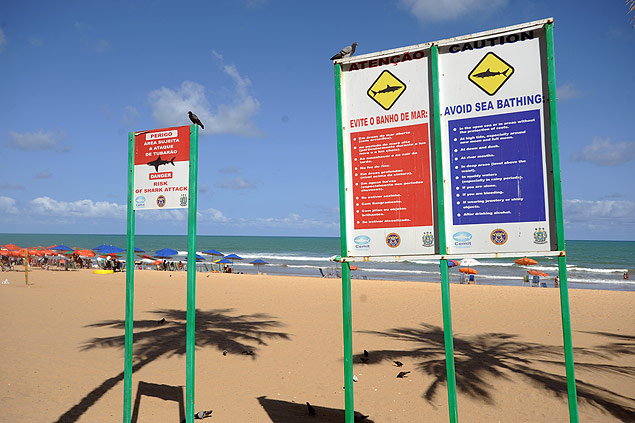Latest Photo Galleries
Brazilian Markets
11h48 Bovespa |
+1,03% | 128.442 |
16h43 Gold |
0,00% | 117 |
11h43 Dollar |
-0,67% | 5,0780 |
16h30 Euro |
+0,49% | 2,65250 |
ADVERTISING
Despite Attacks, Pernambuco Has Not Monitored Sharks for Over a Year
02/12/2016 - 16h10
Advertising
KLEBER NUNES
FROM RECIFE
Pernambuco, the Brazilian state with the highest frequency of shark attacks, has not been monitoring sharks for over a year. The state has had 62 incidents since 1992, 23 of them fatal.
The Protuba project, an agreement between the Federal Rural University of Pernambuco (UFRPE) and the State Secretary of Social Defense, in which five researchers were employed to capture, tag and then release the sharks, was closed in December 2014.
| Leo Caldas/Folhapress | ||
 |
||
| The state has had 62 incidents since 1992, 23 of them fatal |
In ten years, the project captured more than 450 sharks, as well as carrying out environmental education and preventive action, according to Clóvis Ramalho, president of the State Committee of Shark Incident Monitoring (CEMIT).
Since Protuba was closed, Pernambuco has registered two attacks: one in Olinda, where researchers had been active, and one on the archipelago of Fernando de Noronha. Both incidents took place in 2015.
Worldwide, shark attacks appear to be increasing, according to the International Shark Attack File, of the University of Florida. In 2015, there were 98 incidents, with six deaths, up from the previous record of 88 incidents, in 2000.
As well as population growth, which increases the possibility of contact between humans and sharks, researchers also believe that rising sea temperatures are a factor.
Rosângela Lessa, an oceanography professor at UFRPE, is concerned by the lack of monitoring. "It's dangerous for bathers, and it's bad for the sharks as well," she said. "The project, which was recognized internationally, helped to increase our knowledge of the species."
Translated by TOM GATEHOUSE



